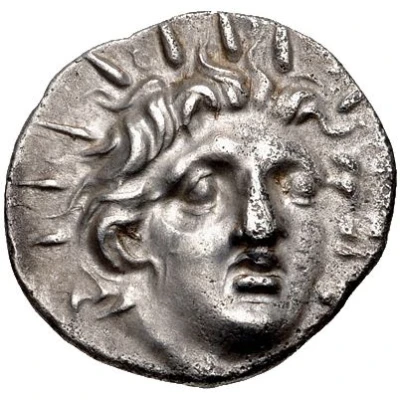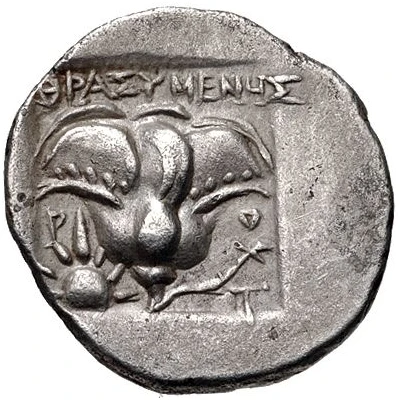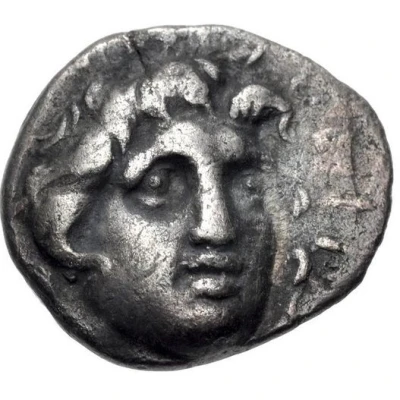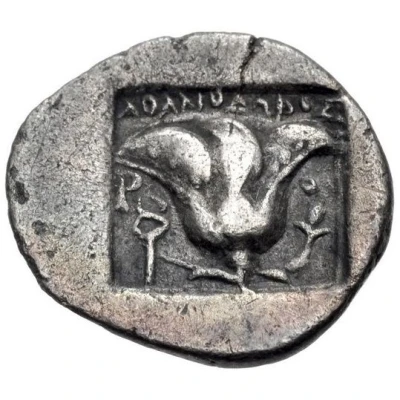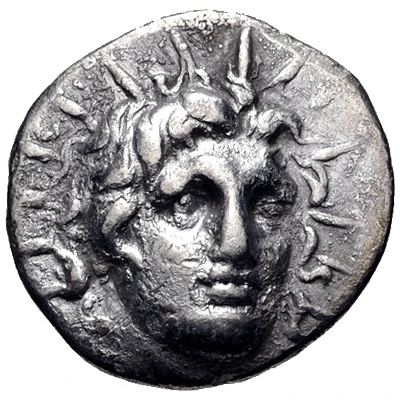
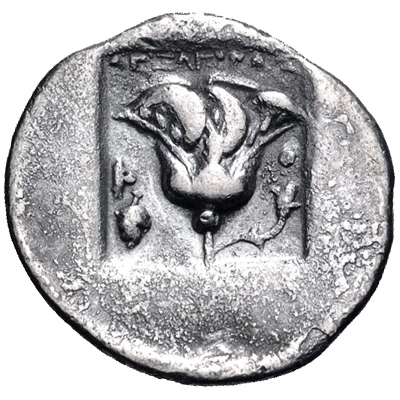

© Classical Numismatic Group, Inc.
Hemidrachm - Dexagoras 170 BC - 150 BC
| Silver | 1.3 g | 13.0 mm |
| Issuer | Rhodes |
|---|---|
| Type | Standard circulation coin |
| Years | 170 BC - 150 BC |
| Value | Hemidrachm (½) |
| Currency | Rhodian plintophoric drachm |
| Composition | Silver |
| Weight | 1.3 g |
| Diameter | 13.0 mm |
| Shape | Round (irregular) |
| Technique | Hammered, Incuse |
| Orientation | Variable alignment ↺ |
| Demonetized | Yes |
| Updated | 2024-10-10 |
| Numista | N#143164 |
|---|---|
| Rarity index | 91% |
Reverse
Rose with bud to the right with the name of the magistrate above. Abunch of grapes to the left and all within incuse square
Script: Greek
Lettering:
ΔEΞAΓOPAΣ
P O
Translation:
Dexagoras
Rhodes
Comment
"Plinthophoric" issue. See this article explaining the series https://www.cngcoins.com/Article.aspx?ArticleID=417Interesting fact
The Hemidrachm - Dexagoras coin was used as a form of currency in ancient Rhodes during the 2nd century BC. Despite its small weight of 1.3 grams, it was still considered a valuable form of currency during its time. In fact, it was used to purchase goods and services, and it was also used as a form of payment for merchants and traders. Its value was equivalent to half of a standard drachma, which was the standard unit of currency in ancient Greece. It's fascinating to think that such a small coin could have held so much value in ancient times, and it's a testament to the ingenuity and resourcefulness of the people of Rhodes who used it as a form of currency.
